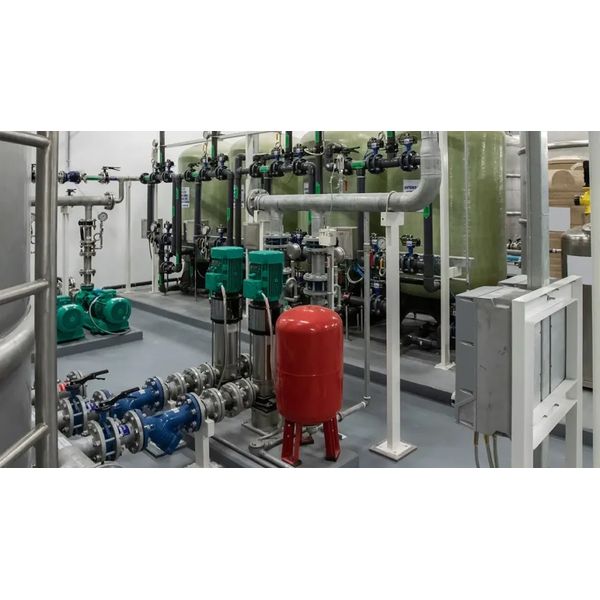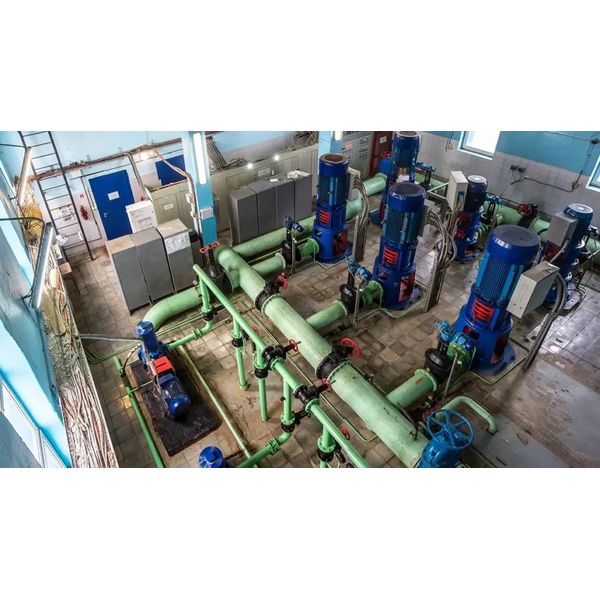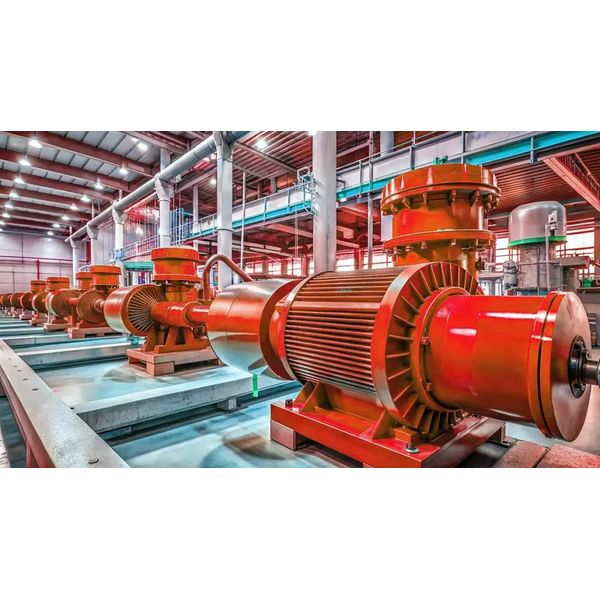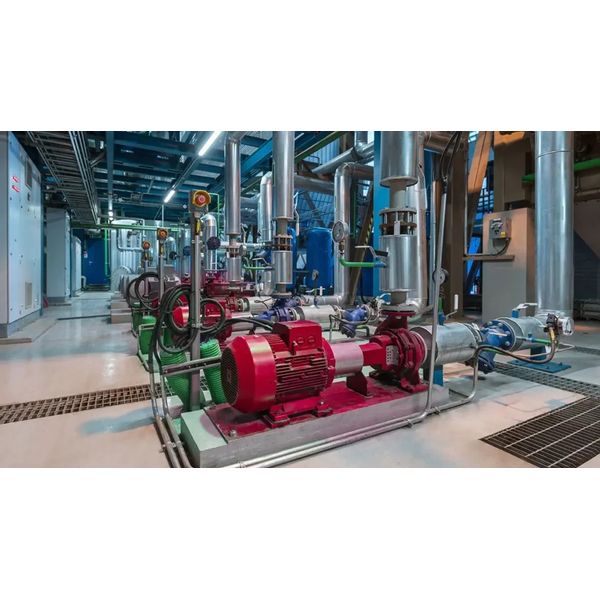


Top Advantages of Gas-Powered Hydraulic Pumps for Remote and Heavy-Duty Applications
Hydraulic pumps play a crucial role in various industries, enabling the conversion of mechanical energy into hydraulic energy to power equipment for tasks such as lifting, pushing, and moving heavy loads. From construction sites to mining operations, these pumps are indispensable for ensuring efficiency and productivity. However, certain applications, especially those in remote or off-grid locations, require more specialized solutions that can function without access to an electrical power grid. This is where gas-powered hydraulic pumps and gas engine-powered hydraulic pumps come into play.
Gas-powered hydraulic pumps provide the ideal solution for these environments, offering both mobility and reliability. These pumps are designed to operate independently of external electrical sources, making them an essential tool for industries that need high power and performance in areas where electricity may not be readily available. Whether in construction, agriculture, forestry, or mining, gas engine-powered hydraulic pumps are increasingly the go-to choice for demanding, heavy-duty applications. These pumps not only provide the necessary power for intensive operations but also offer a level of portability that allows them to be used in places where traditional electric pumps might be impractical. Gas-powered pumps are a versatile, cost-effective solution that can be deployed quickly and efficiently in challenging environments. In this article, we’ll explore the key advantages of these pumps, from enhanced portability to superior performance in harsh conditions, and why they are becoming a crucial asset for many industries.

Overview of Portability in Remote Locations
Portability is essential when selecting equipment for remote locations, especially in industries like construction, agriculture, and mining, where access to electricity is often limited or unavailable. Gas engine-powered hydraulic pumps offer maximum portability, allowing them to operate independently of an electrical grid, unlike electric pumps that rely on a stable power supply. Powered by fuel, these pumps are ideal for areas with minimal or no infrastructure, such as remote construction sites, rural farming areas, or off-the-grid mining operations. Their ability to function autonomously makes them particularly valuable in regions where setting up electrical systems would be costly or impractical. Additionally, their mobility ensures they can be easily transported and deployed in various environments, enabling critical tasks like lifting, drilling, or moving heavy loads to be completed efficiently and without interruptions, even in the most challenging or isolated locations. These features make gas engine-powered hydraulic pumps a reliable and versatile solution for industries that require flexibility and power in remote settings.

In remote areas with limited or no access to electricity, gas engine-powered hydraulic pumps provide a crucial solution. These pumps operate independently of electrical grids, making them ideal for locations like construction sites, agricultural fields, and mining operations far from urban centers. Unlike electric pumps, which require complex setups, gas-powered hydraulic pumps offer portability and self-sufficiency, reducing the need for costly electrical infrastructure. Running on fuel, these pumps ensure uninterrupted operation, delivering reliable performance for heavy machinery and critical tasks in off-grid areas. Designed for harsh conditions, they are durable and dependable, making them perfect for emergency or short-term projects. With minimal setup and easy deployment, gas-powered pumps enable businesses to stay productive, regardless of location.
- Construction: Gas-powered hydraulic pumps operate heavy machinery like excavators, bulldozers, and cranes in construction. These pumps are ideal for use on construction sites where power sources are often not readily available, such as remote building locations or locations without electrical infrastructure.
- Agriculture: Gas-powered hydraulic pumps are frequently used in irrigation systems, to move heavy loads, or to power agricultural equipment. Farmers in remote regions with minimal or nonexistent access to the grid rely on these pumps to support daily operations.
- Mining: Mining operations in isolated areas or underground mines depend heavily on gas-powered hydraulic pumps to operate essential machinery, such as drills and conveyors, without the limitations of electrical grid access.
Discussion on the Power Output of Gas-Powered Pumps
Gas engine-powered hydraulic pumps are engineered for high power and reliability. The engine of a gas engine-powered hydraulic pump typically delivers more horsepower than its electric counterparts, enabling it to handle demanding tasks with ease. This makes them particularly suitable for heavy-duty applications where high-pressure output and continuous operation are required.
Heavy loads need to be lifted or shifted constantly in industries such as mining, construction, and forestry. Gas-engine-powered hydraulic pumps are designed to provide the necessary power to perform these tasks effectively. These pumps can operate large hydraulic cylinders, motors, or other systems that require substantial force, making them essential tools for industries that rely on high performance and durability in demanding conditions.
How These Pumps Are Engineered to Handle Demanding Tasks
Gas-powered hydraulic pumps are built with durable components capable of withstanding the high forces required in demanding applications. The hydraulic system harnesses the engine’s power to provide the force needed for tasks such as lifting heavy loads, drilling, and loading machinery.
These pumps are available in various sizes and configurations, allowing them to be customized for different tasks. Whether you’re lifting tons of material, powering an industrial crane, or pushing heavy machinery, a gas-powered hydraulic pump can provide the reliability and high performance needed to complete the job.
Comparison with Electric Pumps in Terms of Power Capacity and Efficiency
Gas-powered hydraulic pumps generally offer higher power outputs for the same size compared to electric pumps, making them more efficient for heavy-duty tasks. Electric pumps, while reliable in environments where power is readily available, often struggle to keep up with the performance demands of certain industrial applications.
Moreover, gas-powered pumps tend to be more fuel-efficient, allowing for longer operation times without the need for frequent refueling. This is particularly important in areas where power sources are unreliable or non-existent.

No Need for Electrical Infrastructure Makes Them Ideal for Off-Grid Sites
One of the most significant advantages of gas-powered pumps is their ability to operate independently of the electrical grid. In remote or off-grid locations, where electrical infrastructure may be lacking, gas-powered pumps can provide the necessary power to operate essential equipment without any reliance on external power sources.
This flexibility makes them ideal for industries working in isolated regions where building power lines or other infrastructure is not feasible. Whether you’re setting up a temporary drilling site, working in remote farming areas, or conducting research in remote locations, gas-powered hydraulic pumps give you the ability to work uninterrupted.
Versatility in a Wide Range of Industries
Gas-powered hydraulic pumps are incredibly versatile and can be used across a wide range of industries, including:
- Forestry: To operate logging equipment and move heavy timber.
- Oil & Gas: To operate drilling rigs and other equipment on remote oilfields.
- Construction: To power machinery for excavation, grading, and materials handling.
No matter the specific application, gas-powered pumps are flexible enough to work in harsh and diverse environments, helping businesses stay productive and efficient.
Ability to Function in Harsh Environments and Remote Job Sites
Gas-powered hydraulic pumps are built to withstand extreme weather conditions, such as high winds, extreme temperatures, and rugged terrain. Whether you’re working in cold or extreme heat, these pumps remain operational in environments where other types of equipment might fail.

Lower Initial Costs Compared to Electric Pumps
Gas-powered hydraulic pumps generally have a lower upfront cost than electric pumps. This makes them an attractive option for businesses looking to reduce initial capital expenditures. Since they don’t require the installation of expensive electrical systems or connections, they are often a more affordable solution for projects in remote locations.
Maintenance and Operating Costs for Gas Powered Hydraulic Pumps
In terms of ongoing costs, gas-powered pumps are also generally more affordable to maintain than their electric counterparts. While they do require regular maintenance, such as oil changes and filter replacements, the overall maintenance costs are typically lower. In addition, gas-powered hydraulic pumps often have fewer components that can break or malfunction compared to more complex electric pumps.
Reduced Downtime and Improved Productivity in Heavy-Duty Applications
Gas-powered hydraulic pumps are designed for high performance and efficiency, meaning they require less downtime for maintenance or repair. This leads to improved productivity, particularly in heavy-duty applications where reliability is key. With minimal interruptions and enhanced operational capabilities, businesses can reduce overall costs while increasing efficiency.
Simple and Fast Setup of Gas-Powered Pumps on-Site
One of the primary benefits of gas-powered hydraulic pumps is their ease of use and quick setup. Unlike electric pumps, which may require extensive wiring, power supplies, or other electrical components, gas-powered pumps are ready to operate as soon as they are fueled and started. This makes them ideal for fast-response situations, such as construction projects or emergency repairs, where time is of the essence.
Minimal Training Required to Operate, Ensuring High Efficiency and Safety
Gas-powered pumps are designed to be easy to operate, even for personnel with minimal training. With clear instructions and user-friendly controls, operators can quickly learn how to use them safely and effectively. This simplicity ensures that workers can focus on their tasks and maintain high levels of productivity.
Gas Powered Pumps Are Less Prone to Issues Caused by Fluctuating Electrical Power
One key advantage of gas-powered pumps is their reliability. Unlike electric pumps, which may experience issues related to fluctuating electrical power or unreliable grid access, gas-powered hydraulic pumps are independent of electrical systems. This makes them highly reliable in areas where power stability cannot be guaranteed, ensuring that work can continue without interruptions.
Robust Construction Designed for Demanding Environments
Gas-powered hydraulic pumps are designed for durability. They are built to withstand the harshest conditions, from extreme temperatures to rugged terrain. Whether it’s a construction site, a remote oil field, or an agricultural operation, these pumps are made to endure demanding environments without compromising on performance.
Technological Improvements Leading to Cleaner Emissions
Modern gas-engine-powered hydraulic pumps have seen significant technological advancements, making them more environmentally friendly. While older models were criticized for high emissions, newer designs produce fewer emissions and are more energy-efficient, reducing their overall environmental impact. These improvements help reduce the pumps’ carbon footprint while maintaining high-performance standards. As the demand for sustainable solutions grows, these innovations ensure that gas-powered hydraulic pumps meet performance needs while minimizing their environmental footprint.
Energy-Efficient Designs with Lower Fuel Consumption
Modern gas-powered hydraulic pumps are designed to be energy-efficient, consuming less fuel while delivering powerful performance. This results in significant cost savings over time and reduces the environmental impact by lowering fuel consumption. Less frequent refueling also reduces harmful emissions. Their energy-efficient design makes them a cost-effective and eco-friendly choice for businesses, aligning with the growing demand for sustainability while maintaining high power and efficiency.
Safety Considerations, Such as Built-in Pressure Relief Valves and Low-Oil Shutoff Mechanisms
Safety is a key concern in any industrial operation, and gas-powered hydraulic pumps come equipped with a variety of safety features to protect both the operator and the equipment. These features include pressure relief valves, low-oil shutoff mechanisms, and emergency shut-off controls, ensuring that the pump operates safely in high-pressure or emergencies.
Importance of Regular Maintenance for Ensuring Optimal Safety Standards
To ensure optimal safety, regular maintenance is crucial. By adhering to manufacturer guidelines and performing routine inspections, businesses can ensure that their gas-powered hydraulic pumps continue to operate safely and efficiently, reducing the risk of accidents and damage.
Gas-powered hydraulic pumps provide numerous advantages for industries that demand high performance, portability, and reliability, particularly in remote and heavy-duty applications. Their ability to operate without access to electricity, manage tough tasks, and function effectively in harsh environments makes them an essential tool for sectors like construction, agriculture, and mining. By investing in gas engine-powered hydraulic pumps, businesses can enhance productivity, minimize downtime, and reduce operational costs, all while benefiting from the flexibility and power needed to tackle challenging, off-grid projects. These pumps are a versatile, cost-effective solution that ensures efficiency and reliability in the toughest conditions, making gas engine-powered hydraulic pumps an ideal choice for industries that require consistent performance without the limitations of electrical dependence.
